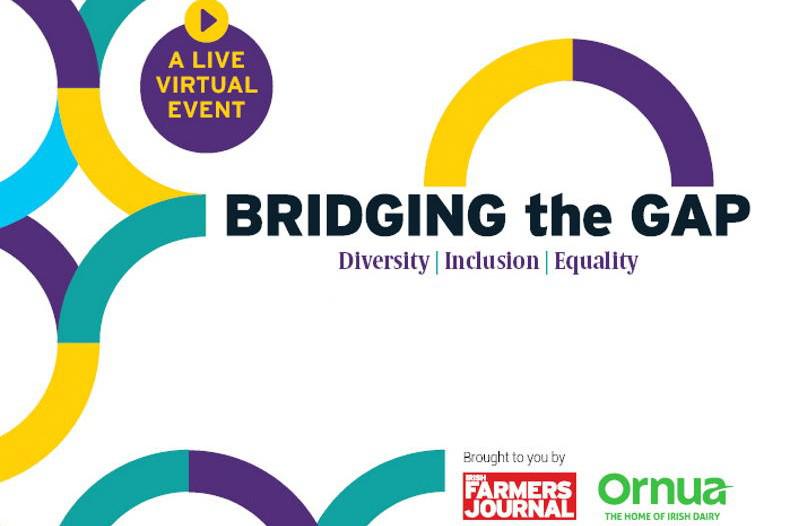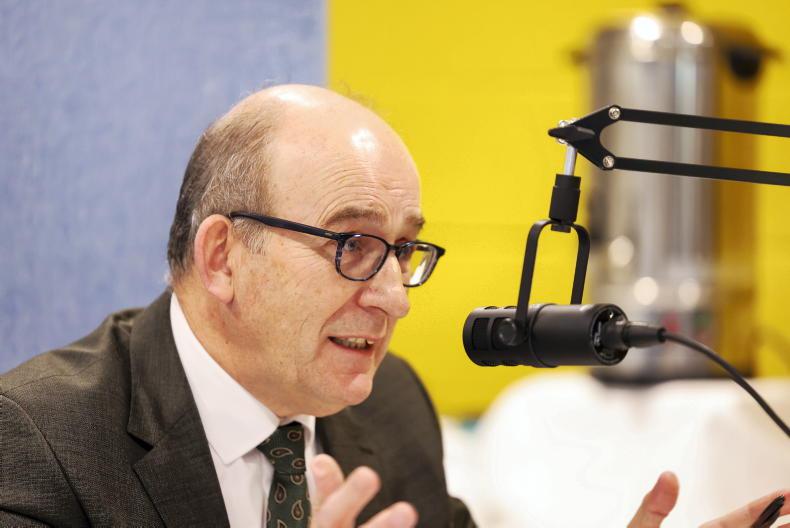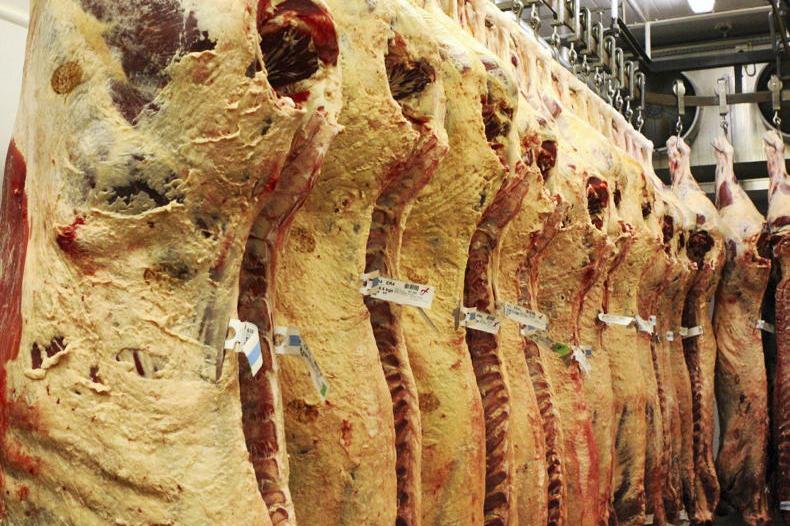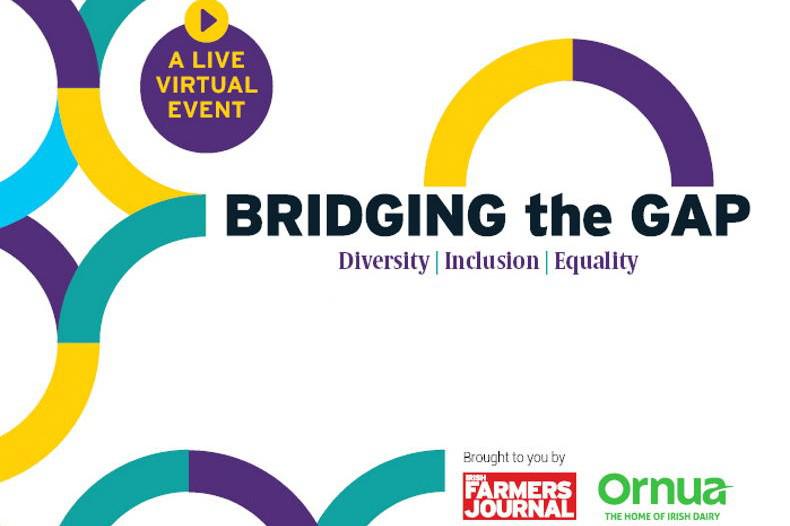A few weeks ago, Cheltenham and Grand National hero, jockey Rachael Blackmore, was interviewed on The Late Late Show. She said: “In racing, we are lucky – equal pay for equal opportunity.” The horse racing industry is no equality utopia, but this is a fine marker, which not many other industries could claim.
The gender pay gap (GPG) refers to the difference between the average earnings of men and women for the same work. The European GPG has been stagnant at 14.1% in recent years.
The Irish Central Statistics Office (CSO) indicates that the GPG in Ireland was marginally higher at 14.4% (2017).
On a positive note for the Irish agri industry, the gap, which is monitored by the Department of Agriculture, Food and the Marine (DAFM), has improved, reducing from 20.5% in 2013 to 13.2% in 2020 below the national average.
Attempts to rectify the GPG have been made such as through the EU Directive on mandatory reporting measures.
The Gender Pay Gap Information Bill 2019 passed report and final stages in the Dáil on Wednesday 19 May 2021 and will now be brought to the Seanad. The aim is to have the bill enacted before the summer recess. Once the bill is enacted, work will begin on regulations provided for under the bill to begin the reporting process.
Global issue
However, progress is slow and the COVID-19 crisis has exasperated equality issues. A recent global survey by an official G20 policy group, Women 20 (W20), in partnership with Accenture, reveals how badly women have been affected by the socioeconomic impact of lockdown.
Women’s earnings have declined more sharply than men’s, dropping by 16.5% on average compared with 10.1% for men, among those employed when the pandemic struck.
A major concern for anyone that cares about female progression is that COVID-19 will lead to retrograde steps for women in the workplace.
The 2020 Women in Food and Agriculture (WFA) survey supports this concern. It revealed that during the pandemic, 26% of women were the primary child minder (working from home) in contrast to 8% of men.
One-fifth of the women felt that their care duties may negatively affect their career advancement. Over the period of the study, it was also revealed that there have also been 1.39 promotions for men, compared to 0.97 for women.
What can be done?
The GPG is only one element of a complex puzzle. Those surveyed felt that as well as the lack of equal pay; lack of mentors, role models, the lack of flexible work and the obstacle of gender bias constituted serious barriers to gender equality.
Almost 60% of women emphasised the importance of peer mentoring programmes while admitting that only 32% currently have a mentor.
Many organisations will run in-house mentoring programmes but there are also professional organisations such as the Irish Management Institute (IMI) offering programmes. The IMI works with the 30% club and since 2019, 90 organisations have become involved with 80% of all mentees female.
Who is doing what to change the situation?
Diversity and inclusion (D&I) policies have the potential to reduce gender inequalities but many companies do not have them in place.
The Irish agri-food industry does have a number of initiatives focusing on how to improve equality in the workforce.
The Department of Agriculture, Food and the Marine (DAFM), for example, has had a focus on gender balance initiatives since 2011 and has an active gender balance steering group in place.
It is also a core member of the Agri-food Diversity and Inclusion forum (AgDif) which aims to position the food and drink sector as the industry of choice for the best talent, regardless of gender.
MSD Ireland describes the policy as “key” to their operations, as they believe innovation arises from the intersection of ideas from people of different backgrounds.
The company aims to attract a diverse workforce and also support the employees through mentoring and other development programmes.
It has also launched a “key series” leader development programme to support female employees with high potential.
Chaired by Accenture’s Alistair Blair – who will speak at the Bridging the Gap event (details below) – AgDif studies the area of gender equality in Ireland and runs events in support of it for those employed in the sector.
Study
A recent study completed by the group revealed that there is a disconnect between employees and business leaders in the importance of D&I in the agri-food sector.
Business leaders (84%) state that gender equality and D&I are important in their workplace. However, only 63% of employees agree this is true. The most common D&I policy implemented is a health and wellness programme (86%).
One-fifth of employees believe D&I is just “a box to be ticked” for their organisation. What is the going to move the dial?
In 2021, things are better. But we are far from there yet. Just weeks ago, we witnessed the President of the European Commission Ursula von der Leyen speak passionately about her treatment on a trip to meet Turkish president Erdogan.
Only two chairs were set for the meeting and she was not given one of them. She attributed this slight, plain and simply, to sexism.
Comment has also been made that there are no women sitting on the COVID-19 Cabinet sub-committee, and therefore there are no women contributing to COVID-19 decisions.
Are companies playing lip service to diversity and inclusion? We will explore this topic at “Bridging the Gap”.
Send your questions to:
webinar@farmersjournal.ie
FACT FILE
COVID-19 is widening gender inequalities, as women have undertaken responsibility for care duties, which in turn affects their career.
A study by Network Ireland indicated that 71% of their members found work to be more challenging since COVID-19 due to juggling work and family.According to the National Women’s Council of Ireland (NWCI) research by NUI Maynooth revealed that 20% of mothers felt like quitting their jobs due to the pandemic and 10% left their jobs to home-school. Chambers Ireland found that 51% of female entrepreneurs felt their work-life balance had been strongly negatively affected by the pandemic. Accenture data shows that In Ireland, employees’ willingness and ability to innovate, is over six times’ higher in companies with a robust culture of equality, where everyone can advance and thrive, than in least-equal companies. According to a 2020 AgDif survey 20% of employees believe D&I is just “a box to be ticked” for their organisation.AgDif 2020 also showed a breakdown between leaders and employees with 84% of business leaders believing progress has been made in attracting, retaining and progressing women to senior management. Employees fundamentally disagree, with only 63% believing that progress has been made.Register for the event
Join us on Friday 28 May for Bridging the Gap. A new event brought to you by the Irish Farmers Journal, in partnership with Ornua, focused on equality, diversity and inclusion (EDI) in the workplace. Register at https://www.farmersjournal.ie/bridging-the-gap-diversity-inclusion-and-equality-621820.
Read more
Watch back: Bridging the Gap: diversity, inclusion and equality
Equity for women in the workplace has to be more than just being ‘facilitated’
A few weeks ago, Cheltenham and Grand National hero, jockey Rachael Blackmore, was interviewed on The Late Late Show. She said: “In racing, we are lucky – equal pay for equal opportunity.” The horse racing industry is no equality utopia, but this is a fine marker, which not many other industries could claim.
The gender pay gap (GPG) refers to the difference between the average earnings of men and women for the same work. The European GPG has been stagnant at 14.1% in recent years.
The Irish Central Statistics Office (CSO) indicates that the GPG in Ireland was marginally higher at 14.4% (2017).
On a positive note for the Irish agri industry, the gap, which is monitored by the Department of Agriculture, Food and the Marine (DAFM), has improved, reducing from 20.5% in 2013 to 13.2% in 2020 below the national average.
Attempts to rectify the GPG have been made such as through the EU Directive on mandatory reporting measures.
The Gender Pay Gap Information Bill 2019 passed report and final stages in the Dáil on Wednesday 19 May 2021 and will now be brought to the Seanad. The aim is to have the bill enacted before the summer recess. Once the bill is enacted, work will begin on regulations provided for under the bill to begin the reporting process.
Global issue
However, progress is slow and the COVID-19 crisis has exasperated equality issues. A recent global survey by an official G20 policy group, Women 20 (W20), in partnership with Accenture, reveals how badly women have been affected by the socioeconomic impact of lockdown.
Women’s earnings have declined more sharply than men’s, dropping by 16.5% on average compared with 10.1% for men, among those employed when the pandemic struck.
A major concern for anyone that cares about female progression is that COVID-19 will lead to retrograde steps for women in the workplace.
The 2020 Women in Food and Agriculture (WFA) survey supports this concern. It revealed that during the pandemic, 26% of women were the primary child minder (working from home) in contrast to 8% of men.
One-fifth of the women felt that their care duties may negatively affect their career advancement. Over the period of the study, it was also revealed that there have also been 1.39 promotions for men, compared to 0.97 for women.
What can be done?
The GPG is only one element of a complex puzzle. Those surveyed felt that as well as the lack of equal pay; lack of mentors, role models, the lack of flexible work and the obstacle of gender bias constituted serious barriers to gender equality.
Almost 60% of women emphasised the importance of peer mentoring programmes while admitting that only 32% currently have a mentor.
Many organisations will run in-house mentoring programmes but there are also professional organisations such as the Irish Management Institute (IMI) offering programmes. The IMI works with the 30% club and since 2019, 90 organisations have become involved with 80% of all mentees female.
Who is doing what to change the situation?
Diversity and inclusion (D&I) policies have the potential to reduce gender inequalities but many companies do not have them in place.
The Irish agri-food industry does have a number of initiatives focusing on how to improve equality in the workforce.
The Department of Agriculture, Food and the Marine (DAFM), for example, has had a focus on gender balance initiatives since 2011 and has an active gender balance steering group in place.
It is also a core member of the Agri-food Diversity and Inclusion forum (AgDif) which aims to position the food and drink sector as the industry of choice for the best talent, regardless of gender.
MSD Ireland describes the policy as “key” to their operations, as they believe innovation arises from the intersection of ideas from people of different backgrounds.
The company aims to attract a diverse workforce and also support the employees through mentoring and other development programmes.
It has also launched a “key series” leader development programme to support female employees with high potential.
Chaired by Accenture’s Alistair Blair – who will speak at the Bridging the Gap event (details below) – AgDif studies the area of gender equality in Ireland and runs events in support of it for those employed in the sector.
Study
A recent study completed by the group revealed that there is a disconnect between employees and business leaders in the importance of D&I in the agri-food sector.
Business leaders (84%) state that gender equality and D&I are important in their workplace. However, only 63% of employees agree this is true. The most common D&I policy implemented is a health and wellness programme (86%).
One-fifth of employees believe D&I is just “a box to be ticked” for their organisation. What is the going to move the dial?
In 2021, things are better. But we are far from there yet. Just weeks ago, we witnessed the President of the European Commission Ursula von der Leyen speak passionately about her treatment on a trip to meet Turkish president Erdogan.
Only two chairs were set for the meeting and she was not given one of them. She attributed this slight, plain and simply, to sexism.
Comment has also been made that there are no women sitting on the COVID-19 Cabinet sub-committee, and therefore there are no women contributing to COVID-19 decisions.
Are companies playing lip service to diversity and inclusion? We will explore this topic at “Bridging the Gap”.
Send your questions to:
webinar@farmersjournal.ie
FACT FILE
COVID-19 is widening gender inequalities, as women have undertaken responsibility for care duties, which in turn affects their career.
A study by Network Ireland indicated that 71% of their members found work to be more challenging since COVID-19 due to juggling work and family.According to the National Women’s Council of Ireland (NWCI) research by NUI Maynooth revealed that 20% of mothers felt like quitting their jobs due to the pandemic and 10% left their jobs to home-school. Chambers Ireland found that 51% of female entrepreneurs felt their work-life balance had been strongly negatively affected by the pandemic. Accenture data shows that In Ireland, employees’ willingness and ability to innovate, is over six times’ higher in companies with a robust culture of equality, where everyone can advance and thrive, than in least-equal companies. According to a 2020 AgDif survey 20% of employees believe D&I is just “a box to be ticked” for their organisation.AgDif 2020 also showed a breakdown between leaders and employees with 84% of business leaders believing progress has been made in attracting, retaining and progressing women to senior management. Employees fundamentally disagree, with only 63% believing that progress has been made.Register for the event
Join us on Friday 28 May for Bridging the Gap. A new event brought to you by the Irish Farmers Journal, in partnership with Ornua, focused on equality, diversity and inclusion (EDI) in the workplace. Register at https://www.farmersjournal.ie/bridging-the-gap-diversity-inclusion-and-equality-621820.
Read more
Watch back: Bridging the Gap: diversity, inclusion and equality
Equity for women in the workplace has to be more than just being ‘facilitated’









SHARING OPTIONS